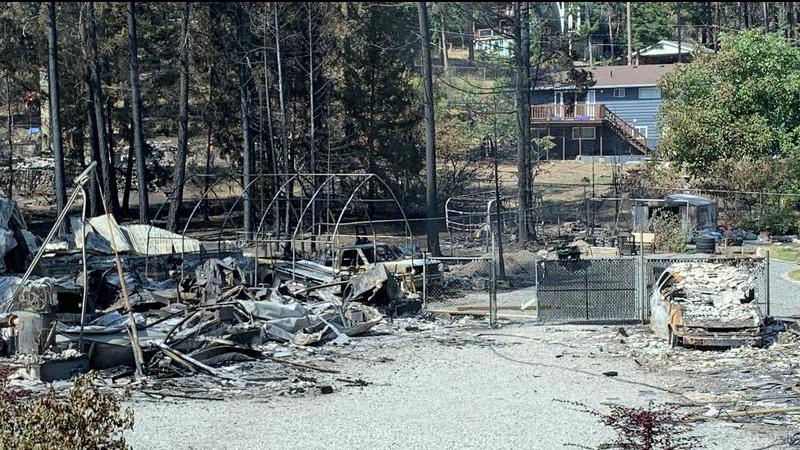
More assessments required for areas destroyed by White Rock Lake wildfire
VERNON, B.C. — Preliminary assessments on the hazards caused by the White Rock Lake wildfire have been completed, but the Regional District of Central Okanagan (RDCO) says more needs to be done before moving on.
RDCO had requested that a Hazardous Condition Assessment and a Community Hazard Assessment be done after the fire destroyed around 75 structures in the Westside North area.
The assessments identified natural hazards associate with hydrologic and geomorphologic processes.
Hydrologic hazards, such as flooding, debris floods and sediment laden floods, are associated with the loss of vegetation and potential development of water repellent soils.


